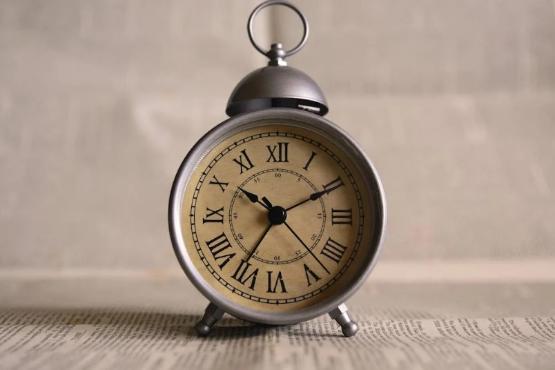Clocks change causes rise in heart attacks and car accidents
Every year when the clocks go forward, there is a corresponding increase in the number of heart attacks and car accidents - that’s according to body clock expert Dr Gisela Helfer, from the University of Bradford.

The chronobiologist, who specialises in circadian rhythms, says a growing body of research suggests a link between annual clock changes and our health and wellbeing.
In 2014, the American College of Cardiology reported a link between clock changes and a rise in heart attacks. A 2013 study in the US found a link between cardiac arrests on the Monday following clocks going forward. As recently as November 2022, the American Medical Association called for an end to DST.
In 2018, the RAC published a report based on five years worth of accident data from the Department for Transport looking at collision data in the two weeks either side of the clocks change. It concluded there were fewer collisions when clocks go forward (-1.5%) but this was far outweighed by a 5.1% increase when clocks go back in October.
Surveys by car rental and insurance companies have also suggested a link between clock changes and car accidents, particularly when clocks ‘go back’, as this means more people are driving in poor light conditions.

Dr Helfer, pictured above, said: “Quite a few studies have now looked at a correlation between the clock change and things like heart attacks and car accidents. The results are quite astonishing.
“Every time we change the clocks, what we are effectively doing is giving the entire country a form of jet lag. This interferes with our circadian rhythm, and puts stress on our immune systems. Having to suddenly get up an hour earlier than you would normally interferes with our hormone levels, which usually control when we sleep and when we wake up.
“In terms of why it leads to an increase in heart attacks and accidents, put very simply, with heart attacks you are putting the body under stress, whereas with accidents, if you think about levels of alertness, you would expect people with jet lag to be less alert.”
Dr Helfer argues it is time to abolish the annual clock change, adding: “Clock changes were brought in originally to save money but there is currently no need to do this. I would argue it is time to end the practice of changing the clocks twice a year.”

How to combat clock change jet lag
Dr Helfer says there are some simple tips people can follow to help mitigate the effects of annual clock changes. These include:
-
Getting up 15 minutes earlier each day in the week before clocks change
-
Go for a walk in sunlight in the morning to help your body clock reset
-
Do not eat after 8pm (or sundown) to prepare your body for sleep
She said: “We have circadian rhythms for good reason. If you think about animals trying to predict the best time of day to look for food or avoid predators or rest, a rhythm that is closely related (circa) to the day (dian) makes a lot of sense. When this is disrupted, it has inevitable consequences in terms of behaviour and physiological response.”

Clocks change history
Clock changes in the UK date back to 1916 (during the First World War), when it was introduced via the British Summer Time Act as a way of saving energy and to give farmers more daylight. During the Second World War, the UK moved to ‘Double British Summer Time’ (GMT+2) and this was repeated in 1947, before reverting to normal BST.
From 1968 to 1971, the UK actually moved to a system of British Summer Time all year round (in an attempt to help industry work more closely with their European counterparts) but the system was abandoned because people in northern parts of the UK were deprived of light for most of the morning during winter.
The Summer Time Act 1972 re-introduced BST and established a new framework for when it should begin and end.
In 2019, the EU voted to end mandating daylight saving time, meaning each EU country could decide whether it wanted to adopt a permanent ‘winter’ or ‘summer’ clock - however, the plans were shelved due to the pandemic and have not since been revisited.
Clocks change…
And remember, this year the clocks go forward at 1am on Sunday March 31.
